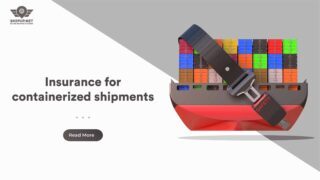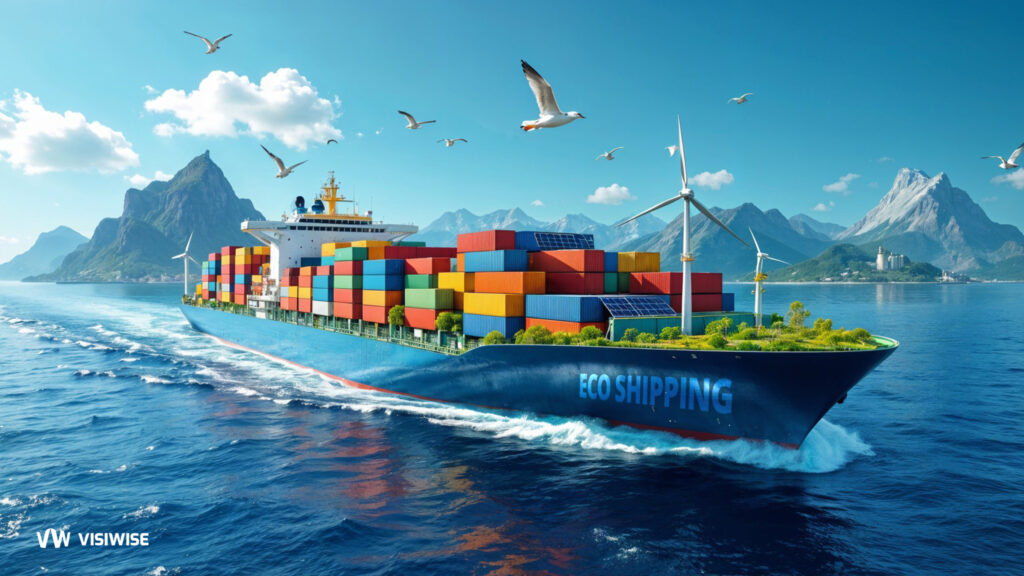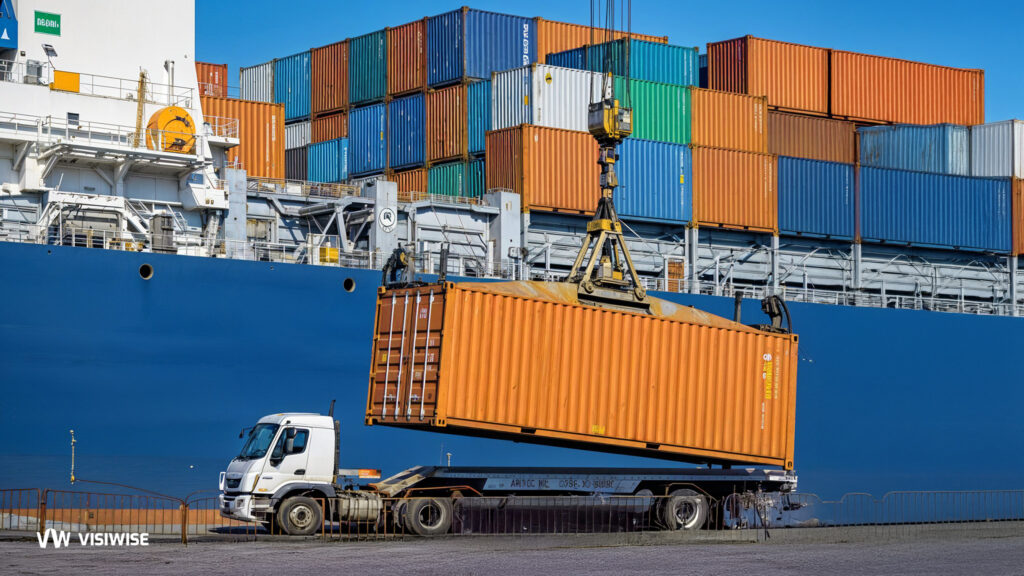Shipping containers have revolutionized the way goods are transported globally, and everybody is using the benefits. The use of containers has made it possible to move large quantities of goods in a secure, cost-effective and efficient manner from anywhere to every corner of the world. But, with all the advantages of containerized shipments comes the risk of loss or damage during transit; of course, the risks are not due to containers, but containerized shipments are no exception. That’s why it’s essential for importers, exporters, and freight forwarders to consider insurance as a means of protecting their investments.
In this article, we’ll delve into the world of containerized shipments and explain why insurance is so important. We’ll also discuss the different types of insurance available, factors to consider when choosing insurance, and best practices for insuring your shipments. Our goal is to provide importers, exporters, and freight forwarders with a comprehensive guide to insurance for containerized shipments, so they can make informed decisions and ensure their goods are protected every step of the way.
Understanding Containerized Shipments
A containerized shipment refers to the transportation of goods in a standard-sized metal container. If you work in the shipping industry, you may have seen thousands of them before. The use of containers has streamlined the shipping process, making it easier and more efficient to transport goods across borders for all the people who have something to ship. Containers come in different sizes and types, including dry containers for general cargo and refrigerated containers for perishable goods. Each one has its unique characteristics, and in the case of insurance, there is always something to consider about your shipments.
Benefits of containerized shipments include:
- Improved security of goods during transit
- Efficient and cost-effective transportation of goods
- Reduced handling of goods, resulting in fewer damages
Importance of Insurance for Containerized Shipments
Insurance for containerized shipments provides protection against loss or damage to goods during transit. It also offers coverage for unexpected events such as natural disasters, theft, or other incidents. The peace of mind that comes with having insurance in place is invaluable for importers, exporters, and freight forwarders who want to protect their investments.
Without insurance, the financial consequences of lost or damaged goods can be significant. In the worst-case scenario, a shipment may be completely lost, resulting in a significant financial loss for the owner of the goods. With insurance in place, the insurer will cover the cost of replacing or repairing the damaged goods, reducing the financial impact on the owner.
In conclusion, insurance is an essential component of a successful containerized shipment, providing protection and peace of mind for all parties involved. In the next section, we’ll explore the different types of insurance available for containerized shipments.
Types of Insurance for Containerized Shipments
There are several types of insurance available for containerized shipments, each with its own benefits and drawbacks. It’s important to understand the different options so you can choose the right insurance for your needs.
Individual insurance policy
This policy is valid only during the transport of a single given cargo. It is usually chosen when taking out a policy for a longer period is not profitable.
Open cover policy
This policy is valid for the next 12 months, and the range of insurance and insurance rate is specified when signing the deal. The insurer should be informed about each transported cargo to insure it. Only one selected shipment is insured, and payment for such insurance is annual or settled after 12 months.
Block policy
This policy is similar to the open cover policy, except that it covers all transported cargo during the next 12 months. This means that all cargo is automatically insured. To pay for this policy, a statement including the amount of turnover has to be handed to the insurer.
All-risk insurance
This policy provides coverage for any loss or damage to the insured goods during shipping unless it is specifically excluded from the policy. This type of insurance typically has a higher premium than other types of policies.
Total loss insurance
This policy provides coverage for the total loss of the cargo during transportation. It is usually taken out for high-value goods or for cargo that is transported through high-risk areas.
General average insurance
This policy covers the loss or damage of cargo that is intentionally jettisoned to save the rest of the ship and its cargo during an emergency situation, such as a fire or collision.
War risk insurance
This policy provides coverage for loss or damage caused by war or acts of terrorism, which are not typically covered under standard insurance policies.
Warehouse-to-warehouse insurance
This policy covers the insured goods from the time they leave the warehouse of the seller until they arrive at the warehouse of the buyer, including any intermediate transport by land, sea or air.
The Role of the freight forwarder in insuring a cargo
It’s important to compare the different insurance options and understand the coverage they provide before making a decision. Note that the availability of these types of policies may vary depending on the insurance provider and the specific terms and conditions of the policy. In the next section, we’ll discuss the factors to consider when choosing insurance for your containerized shipments.
The freight forwarder plays a crucial role in insuring a cargo when it is being shipped. As a middleman between the cargo owner and the shipping company, the freight forwarder is responsible for arranging the transportation of the cargo from one location to another. In addition to transportation, the forwarder can also provide insurance coverage for the cargo during the entire shipping process. This includes insuring the cargo during loading, unloading, and any other processes that take place in between.
The responsibility of the freight forwarder in insuring a cargo is particularly important because they have the knowledge and experience to navigate the complex rules and regulations surrounding shipping and insurance. Freight forwarders are licensed and have good connections with insurance companies, making it easier for them to obtain insurance coverage for their clients. They are also familiar with the risks involved in shipping cargo and can advise their clients on the best insurance options to suit their needs.
Ultimately, by providing insurance coverage for their clients’ cargo, freight forwarders help to minimize the risk of loss or damage during shipping and provide peace of mind for cargo owners. Freight Forwarders who use Visiwise Platform can share the documents of each shipment with the parties who are involved with the shipment. Visiwise workspace gives this chance to communicate with colleagues or customers over each shipment.
Factors to Consider When Selecting Insurance
When it comes to insuring your containerized shipments, it’s crucial to make an informed decision. A well-selected insurance policy can provide peace of mind and financial protection in the event of loss or damage to your goods. Here are several important aspects to consider when choosing the right insurance:
- Coverage Requirements: Determine what specific coverage you need for your containerized shipments. For example, if you’re transporting perishable goods, you may require coverage for refrigeration failure. Make sure the insurance policy you choose covers all of your unique requirements and provides adequate protection.
- Cost: Insurance can be an additional expense, so it’s important to factor it into your overall budget for your shipment. Keep in mind that the cheapest option may not always be the best choice, as it may not provide the coverage you need. Consider getting quotes from multiple insurance providers to compare the costs and benefits of different options.
- Insurer’s Reputation: Choose an insurance provider with a strong reputation in the industry and a proven track record of handling claims efficiently and fairly. Take time to research the provider’s financial stability and customer satisfaction ratings to ensure they have a history of meeting the needs of their clients.
- Claims Process: Understanding the claims process is a critical component of choosing the right insurance. The claims process should be straightforward and easy to follow in case of loss or damage to your shipment. Find out what documentation is required and how long it takes for claims to be processed. Make sure you’re comfortable with the claims process before you sign on with a specific insurance provider.
By considering these factors, you can make an informed decision and choose the insurance policy that best meets the needs of your containerized shipments. With the right coverage in place, you can ensure the protection of your goods and minimize the risk of financial loss.
The Benefits of Insuring Containerized Shipments
In addition to providing financial protection in the event of loss or damage to your goods, there are several other benefits to insuring your containerized shipments:
- Peace of Mind: Knowing that your goods are insured can provide peace of mind and allow you to focus on your other business responsibilities.
- Financial Protection: In the event of loss or damage, an insurance policy can help you recoup some or all of your losses. This financial protection can be critical in helping you recover from an unfortunate event and keep your business operations running smoothly.
- Demonstrates Responsibility: By insuring your containerized shipments, you’re demonstrating a level of responsibility and commitment to your clients and customers. This can help build trust and confidence in your business and can be a competitive advantage in your industry.
- Meets Legal Requirements: In some cases, insurance may be required by law in order to transport certain types of goods. By having a comprehensive insurance policy in place, you can ensure that you’re in compliance with all relevant regulations.
- Supports Sustainable Business Operations: In the event of loss or damage, an insurance policy can help you quickly recover and continue operations without interruption. This can help support sustainable business operations and minimize the impact of unexpected events.
Keeping Insurance Documents Safe with Visiwise
One of the biggest challenges facing businesses involved in the transportation of goods is keeping their insurance documents safe and accessible. Whether you’re an importer, exporter, or freight forwarder, having easy access to your insurance documents is critical in the event of a claim.
This is where Visiwise comes in. As a shipment visibility platform, Visiwise provides a secure and centralized platform for storing and sharing insurance documents. With Visiwise, you can easily upload and store your insurance documents in a secure, cloud-based platform and access them from anywhere at any time.
Here are a few of the benefits of using Visiwise to keep your insurance documents safe:
- Safe and Secure: Visiwise uses state-of-the-art encryption and security protocols to protect your insurance documents, ensuring that they’re safe and secure from cyber threats.
- Easy Access: With Visiwise, you can access your insurance documents from anywhere, at any time, making it easy to retrieve them in the event of a claim.
- Centralized Platform: Visiwise provides a centralized platform for storing and sharing insurance documents, making it easier for you to keep track of all your insurance information in one place.
- Collaboration: With Visiwise, you can share your insurance documents with other team members, partners, or stakeholders, making it easier to work together and streamline the process of filing a claim.
The Bottom Line
In conclusion, insuring your containerized shipments is a smart decision for any business involved in the transportation of goods. By considering your coverage requirements, selecting the right insurance provider, following best practices, and taking steps to keep your shipments safe and secure, you can ensure the protection of your goods and minimize the risk of financial loss. For example, for containerized shipments, all-risk insurance is a good option to consider. This type of insurance covers damage or loss of cargo during transportation, including damage caused by natural disasters or accidents.
In another case, if a shipment of electronics is being transported via a container ship and the ship encounters a storm that damages the cargo, all-risk insurance will cover the damage.
Another example would be if a shipment of perishable goods, such as fruits, is being transported and the temperature-controlled container malfunctions, causing the goods to spoil. All-risk insurance would cover the financial loss.
All in all, with the right insurance policy in place, you can focus on growing your business and reaching your goals.



